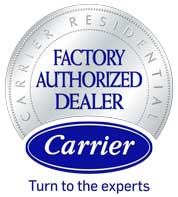If you’ve noticed that some rooms in your house feel warmer or colder than others despite having a heating and cooling system in place, you’re not alone. Many homeowners face this issue, but the root cause can often be elusive. Airflow issues in an HVAC system can lead to inconsistent temperatures, increased energy bills, and overall discomfort in your living environment. Whether it’s time for an air conditioning repair or a more in-depth inspection, understanding why your system might have poor airflow is crucial for finding a solution.

Common Reasons for Poor Airflow
Clogged Air Filters: One of the most frequent culprits for poor airflow in HVAC systems is a clogged air filter. Air filters trap dust, pollen, and other airborne particles, ensuring that only clean air circulates through your home. However, over time, these filters can become clogged with debris, restricting the flow of air. To prevent this, check and replace your air filters every 3-4 months, or even more frequently if you live in an area with high dust levels.
Oversized or Undersized HVAC Units: Another potential issue is having an HVAC unit that doesn’t match the size of your space. An oversized unit will cool or heat your space too quickly without properly dehumidifying the air, leading to short cycling and increased wear. On the other hand, an undersized unit will struggle to maintain the desired temperature, running continuously and inefficiently. Consulting with an HVAC expert for air conditioning installation ensures you have a unit that’s correctly sized for your home.
Ductwork Issues: Leaking or blocked ductwork is another common cause of airflow problems. Over time, dust and debris can accumulate in your ducts, or they may develop leaks or blockages that prevent air from flowing freely to all parts of your home. A professional inspection can identify and rectify these issues, improving your system’s efficiency and the comfort of your home.
Solutions for Improving Airflow
Regular Maintenance: Routine air conditioning maintenance is key to preventing airflow issues. This includes regular cleaning of air filters, inspection of ductwork for leaks or blockages, and ensuring outdoor units are free from debris. Ensuring your cooling system is functioning efficiently is especially important in areas with extreme seasonal temperatures.
Smart Thermostats: Upgrading to a smart thermostat can also help improve your system’s efficiency by allowing for greater control over heating and cooling patterns. These devices can learn your schedule and adjust temperatures accordingly, reducing the strain on your HVAC system and improving airflow.
Professional HVAC Evaluation: Sometimes, the most effective way to diagnose and solve airflow issues is to consult with a professional. A knowledgeable HVAC technician can offer personalized advice and solutions, considering the unique aspects of your home and climate.
Conclusion
Airflow issues in your HVAC system can stem from various sources, from clogged air filters and improperly sized units to ductwork problems. Addressing these issues not only improves comfort but also enhances your system’s efficiency and longevity. If you’re experiencing airflow issues and want professional assistance, Superior Air is here to help! Serving Hanford, CA, and surrounding areas, we’re dedicated to keeping your home comfortable year-round. Call us at (559) 734-2002 or fill out our contact form to schedule a consultation today!



